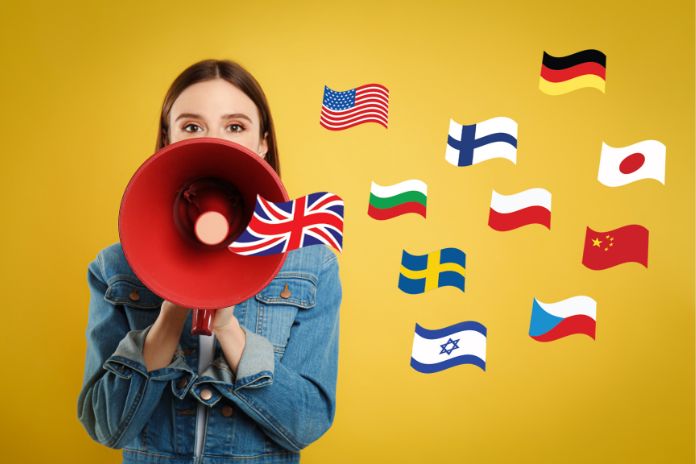Chat GPT Guide Online
Exploring the Possibilities of Chat GPT
What is Chat GPT?
Chat GPT is an artificial intelligence program that can chat with humans in a natural and intuitive way. It is based on a complex mathematical model, known as the Generative Pre-trained Transformer, that has been trained on a huge corpus of text data from the internet. The model analyzes this data to learn how people use language and understand different contexts.
Once it has been trained, Chat GPT can understand natural language input from users and respond with a suitable reply. For example, if you ask Chat GPT “What’s the weather like today?”, it will use its knowledge of weather and related topics to generate a response that provides you with the current weather conditions. The program can also learn and adapt to new situations and topics over time, making it an increasingly useful tool for communication and problem-solving.
Chat GPT Log In
Logging in to ChatGPT is a simple process that can be completed in just a few steps. Here’s what you need to do:
Step 1: Access the ChatGPT Website
The first step to logging in to ChatGPT is to access the website. You can do this by typing “chatgpt.com” into your web browser’s address bar and hitting enter. This will take you to the ChatGPT homepage.
Step 2: Click on the Login Button
Once you’re on the ChatGPT homepage, you should see a button labeled “Login” in the top right corner of the page. Click on this button to proceed to the login page.
Step 3: Enter Your Credentials
On the login page, you’ll need to enter your credentials. This will include your username and password, which you should have created when you signed up for the platform. If you don’t remember your credentials, you can click on the “Forgot Password” link to reset your password.
Step 4: Solve the Captcha
After entering your credentials, you’ll need to solve a captcha. Captchas are used to prevent automated bots from accessing the platform, so you’ll need to solve this puzzle to prove that you’re a human. Follow the on-screen instructions to solve the captcha and move on to the next step.
Step 5: Click on the Login Button Again
After completing the captcha, click on the “Login” button again. If your credentials were correct and you solved the captcha, you should now be logged in to ChatGPT and able to start interacting with the chatbot.
How does Chat GPT work?
ChatGPT works by using a combination of natural language processing (NLP) and machine learning algorithms. When a user inputs a message, the platform uses NLP to understand the meaning behind the text and generate an appropriate response. This response is then refined using machine learning algorithms, which enable the platform to learn from past conversations and improve its responses over time.
The platform is designed to be flexible and adaptable, meaning that it can be trained to handle a wide range of tasks and scenarios. For example, it can be trained to answer customer support questions, provide product recommendations, or even engage in casual conversation with users. This flexibility makes it a valuable tool for businesses across a range of industries.
The Benefits of Chat GPT
There are several benefits to using ChatGPT, both for businesses and consumers. Some of the key benefits include:
Improved customer service: ChatGPT can provide fast and accurate responses to customer queries and support requests, improving overall customer satisfaction and experience.
Personalized interactions: ChatGPT can be customized to handle a wide range of tasks and scenarios, providing a more personalized and engaging experience for users. This can help businesses to build stronger relationships with customers and increase loyalty over time.
Increased efficiency: By automating routine tasks such as customer support or product recommendations, businesses can free up employees to focus on more complex and strategic tasks, leading to increased productivity and efficiency.
Cost savings: By automating tasks and streamlining operations, businesses can reduce costs associated with customer support and other functions.
Who Created ChatGPT?
ChatGPT was created by OpenAI, a leading artificial intelligence research institute co-founded by tech luminaries such as Elon Musk, Sam Altman, Greg Brockman, and Ilya Sutskever. OpenAI’s goal is to create advanced AI technologies in a safe and beneficial way that can be used to improve people’s lives. ChatGPT is one of their flagship projects in the field of natural language processing and conversational AI.
OpenAI was founded in 2015, with the goal of creating AI technologies that are safe, beneficial, and aligned with human values. The organization has a team of researchers and engineers working on a wide range of AI-related projects, including natural language processing, robotics, and machine learning.
ChatGPT is one of OpenAI’s most prominent projects, and it has received a lot of attention from the AI research community, as well as from businesses and consumers. The platform is based on the GPT (Generative Pre-training Transformer) language processing model, which is capable of generating human-like responses to text-based inputs.
ChatGPT has been trained on a massive dataset of text from the internet, enabling it to understand a wide range of topics and respond to user queries with a high degree of accuracy. The platform is designed to be flexible and adaptable, meaning that it can be customized to handle a wide range of tasks and scenarios.
OpenAI offers an API for ChatGPT, enabling businesses and developers to incorporate the platform into their own products and services. The API includes a range of tools and features that make it easy to integrate ChatGPT into existing applications, as well as to train and customize the platform for specific use cases.
Chat GPT vs Playground
ChatGPT and Playground are both projects developed by OpenAI, but they serve different purposes and have different features.
ChatGPT is an AI-powered chatbot designed to simulate human-like conversations with users in a natural and engaging way. It is based on the GPT language processing model, which enables it to generate highly accurate and human-like responses to text-based inputs. ChatGPT is primarily used for customer support, but it can also be used for a wide range of other tasks, such as providing product recommendations, answering FAQs, or engaging in casual conversation with users.
Playground, on the other hand, is an interactive platform designed to help users explore and experiment with AI technologies. It includes a range of tools and features that enable users to create and train their own AI models, as well as to experiment with pre-trained models developed by OpenAI. Playground is designed to be user-friendly and accessible, even for users with little to no programming experience.
While both ChatGPT and Playground are designed to showcase the power of AI, they serve different purposes and are targeted at different audiences. ChatGPT is primarily aimed at businesses looking to provide better customer support or engagement, while Playground is aimed at individuals or organizations looking to explore and experiment with AI technologies.
Chat GPT Networth
OpenAI has received significant funding from a range of investors, including Microsoft, which invested $1 billion in the company in 2019. The company has also generated revenue through partnerships with a range of businesses, including Microsoft, Amazon, and IBM.
While it is difficult to determine the precise financial impact of ChatGPT on OpenAI’s overall valuation or revenue, the platform has received significant attention from businesses and consumers alike, and it is likely to play an important role in the company’s future growth and success.
why does chatGPT stop writing?
There could be several reasons why ChatGPT might stop writing, depending on the specific situation. Here are a few possible reasons:
- Technical issues: ChatGPT relies on complex algorithms and software systems to function, and it is possible that technical issues or bugs could cause the platform to stop working properly.
- Training data limitations: ChatGPT’s responses are generated based on the data it has been trained on, and if this data is limited or biased in some way, it could lead to inaccurate or incomplete responses.
- Lack of context or information: ChatGPT may struggle to generate a response if it does not have enough context or information to work with. For example, if a user’s query is too vague or ambiguous, ChatGPT may not be able to provide a helpful response.
- Maintenance or updates: Like any software system, ChatGPT may occasionally need to be taken offline for maintenance or updates. During this time, the platform may be unavailable or may not be able to generate responses.
If you are experiencing issues with ChatGPT, it is best to consult the platform’s documentation or contact OpenAI’s support team for assistance.
character limit for chat GPT
The character limit for ChatGPT, like many other natural language processing (NLP) models, varies depending on the specific implementation and use case. However, OpenAI’s publicly available API for ChatGPT has a maximum input length of 2048 tokens per message.
In practice, this means that ChatGPT can handle relatively long and complex queries or statements, but there are still limits to the amount of information that the platform can process at once. This is because NLP models like ChatGPT rely on complex algorithms to understand and generate responses to natural language inputs, and longer inputs require more computational resources and processing time.
It is worth noting that there are other factors that can affect ChatGPT’s ability to handle inputs beyond just the character limit, including the complexity of the language used, the quality and relevance of the training data, and the specific task or application at hand. As such, it is important to consider these factors when working with ChatGPT or other NLP models.
The Future of Chat GPT
The future of ChatGPT looks promising, as the platform continues to evolve and improve, and as more businesses and organizations adopt AI-powered chatbots and virtual assistants. Here are a few potential directions that ChatGPT and conversational AI more broadly could take in the coming years:
Improved natural language understanding: One of the key challenges for AI-powered chatbots like ChatGPT is understanding and interpreting the nuances of human language. In the future, we may see further improvements in natural language processing (NLP) models that enable chatbots to better understand and respond to user queries, even in complex or ambiguous scenarios.
Integration with other AI technologies: ChatGPT could be integrated with other AI technologies, such as computer vision or robotics, to enable more sophisticated and seamless interactions with users. For example, a chatbot could use computer vision to identify a product in a user’s photo, and then use ChatGPT to provide information about the product or offer purchasing options.
Personalization and customization: As ChatGPT becomes more widely adopted, we may see a greater emphasis on personalized and customized interactions. This could include using data analytics to understand user preferences and behaviors, or developing more advanced machine learning models that can tailor responses to individual users.
Continued expansion into new industries and use cases: ChatGPT is already being used in a wide range of industries, including healthcare, finance, and education. In the future, we may see the platform expand into even more industries and use cases, as businesses and organizations look for ways to automate routine tasks and provide more efficient and effective customer support.












